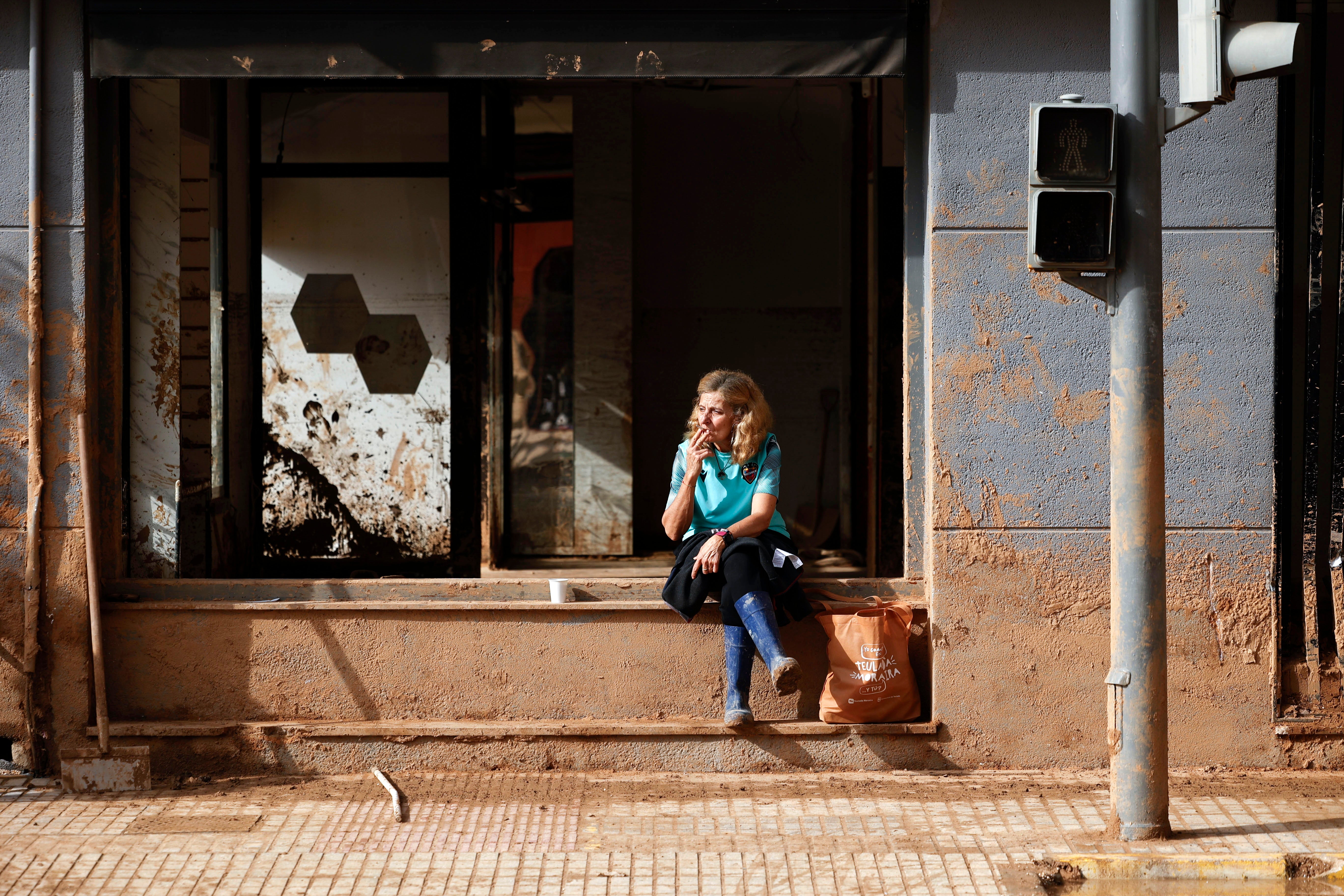
Thousands of Spaniards evacuated ahead of a fresh deluge of rain have been told not to return home as swollen riverbanks threaten to overflow.
Local authorities had issued severe rain alerts in Andalusia and Valencia and referenced further storms in the provinces of Huelva, Cadiz, Seville and Alicante on Wednesday night into Thursday.
While a number of those weather warnings were downgraded across Thursday, emergency services in Malaga kept almost 4,000 people who were evacuated because of a flood risk out of their homes from rising river waters. Schools also stayed closed in the province and in different towns in Granada, Sevilla, Cadiz and Huelva. Half a million children in total stayed away from Andalusian schools on Wednesday.
More than a month’s worth of rain fell in some areas Wednesday just two weeks after the worst floods in the country’s modern history killed around 220 people and destroyed thousands of homes, particularly around Valencia.
According to data from the Spanish state weather forecaster Aemet, the highest rainfall recorded overnight included 110mm in Alcudia de Veo, 99mm in Suera, and 88mm in Chiva. By comparison, Malaga usually averages 100.5mm of rain for the entire month of November.

Andalusia’s regional head, Juan Moreno, of the conservative People’s Party (PP) said the Guadiaro river was just 6cm away from overflowing. He cautioned that “normal conditions are not in place”, despite the downgraded weather warnings.
“We continue to monitor [the storm’s] progress in all provinces. Caution until the end,” he said in a post on X (Twitter).
While Aemet removed all red alerts on Thursday as the storm system moved west, orange alerts remain for western Andalusia, including the popular city of Seville, where up to 30mm of rain is expected.
“Red warnings have been deactivated in the provinces of Malaga and Valencia,” Aemet said in a statement on Thursday morning. It continued: “Orange warnings [significant danger] remain active due to very heavy rain in areas of the provinces of Huelva, Cadiz, Seville, Alicante and Valencia.”
In Seville, schools and universities remained closed. Mayor José Luis Sanz assured residents that the city “is prepared”, with nearly 1,900 troops on standby to assist if needed.

In Malaga, flooding on Wednesday forced the main hospital to halt services as water swept through corridors. Major roads and the high-speed rail link with Madrid were also closed.
The emergency committee in Valencia, where there were concerns about the potential impact of more rainfall in areas with significant quantities of mud already and damaged sewage systems, said the areas affected by the deadly storms were not hit this time.
The city council announced Thursday that classes would resume on Friday in most schools within the city and surrounding areas, with exceptions for schools in La Torre and Forn de Alcedo. Residents were encouraged to use public transport, bicycles or walk. It also lifted a ban on the use of private cars.
High-speed trains between Madrid and Valencia, suspended since the 29 October storm and flooding, were expected to resume Thursday afternoon, and the train connection between Valencia and Barcelona also started running again, the transport ministry said.
Spanish authorities also shared the first detailed breakdown of the fatalities from the Valencia floods two weeks ago. A data protection centre called the CID, established after last month’s catastrophic flooding along Spain’s eastern coast, reported that of the 216 fatalities confirmed so far, 131 were men and 85 were women.

Of the deceased, 190 were Spanish nationals. The remaining 26 represented 11 other nationalities: nine Romanians, four Moroccans, four Chinese nationals, two British citizens and one each from Ecuador, Venezuela, Ukraine, the Netherlands, Tunisia, Colombia, and Paraguay. The number of victims aged 70 or older currently stands at 104.
The latest storms, and robust preparations for their arrival, come after fierce criticism towards the national and regional governments for their preparedness and reaction to the floods two weeks ago.
Mounting public anger is being directed at regional president Carlos Mazon after it emerged he was at a long lunch until about 6pm, by which time the town of Utiel was already flooded and the national weather service, Aemet, had issued a red alert. His government’s emergency meeting had started an hour earlier, at 5pm.
Growing public anger came to a head on Saturday when 130,000 people took to the streets of Valencia and called for Mr Mazon’s resignation. Photos of the protest showed signs saying: “Our hands are stained with mud, yours with blood.”
During a visit to Valencia in the immediate aftermath of the floods, King Felipe VI, prime minister Pedro Sanchez, and Mr Mazon encountered furious locals in the town of Paiporta and were hurled with mud and insults, expressing their anger over what they perceived as inadequate government support.
Reuters contributed to this report







